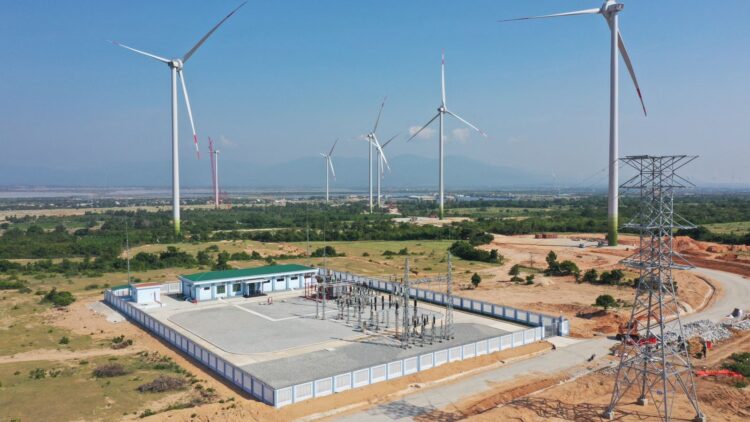In July, the government issued a ruling on direct power purchase agreements (DPPAs). Dr. Oliver Massmann, partner and general director of consulting firm Duane Morris Vietnam LLC, spoke with VIR’s Khoi Nguyen about how the move will impact the energy sector in Vietnam, especially when it comes to German investors.
What is your take on Decree No.80/2024/ND-CP on direct electricity purchase and sale between renewable energy generation units and large electricity consumers?
Decree 80, which I refer to as the DPPA decree, has been highly anticipated and is warmly welcomed by everyone involved in the energy sector. I, like many others, have been waiting for years for this decree to be issued, and it’s a positive step by the government to finally release it now.
However, certain sections still require further guidance from the authorities, particularly regarding the detailed procedures for participating in grid-connected DPPAs.
How effectively do you think this decree will be deployed in Vietnam?
I believe this decree will play a crucial role in Vietnam’s renewable energy development. Investors are likely already making moves based on this decree, which should lead to increased investment in the country.
However, some uncertainties in the decree still need to be addressed. Further is necessary on the procedures for participation, guidance, the contract forms, and the parties eligible to participate under the DPPA mechanism. These clarifications must come from the governmental authorities to ensure the decree’s enforceability.
Additionally, the electricity operation licence remains the most important sub-licence for electricity trading activities, and since this licence is under the sole discretion of the competent authorities, its requirements could significantly impact the decision-making of energy investors.
Based on Germany’s experience with renewable energy policies, what suggestions would you offer to improve the effectiveness of this new decree in Vietnam?
Germany’s renewable energy sector is among the most innovative and successful worldwide, thanks to a comprehensive legal framework that includes the Grid Expansion Acceleration Act, the Renewable Energy Act, and the Building Energy Act.
These laws offer incentives for renewable energy, establish that the use of renewable energies is of overriding public interest until greenhouse gas neutrality is achieved, and streamline procedures for grid planning and construction. Drawing from Germany’s experience, I would suggest that Vietnam provides clear guidance on the DPPA decree to address current ambiguities, including more detailed procedures, a streamlined process, and less emphasis on sub-licences.
How can Germany’s expertise in renewable energy contribute to Vietnam’s energy transition, and what collaborative opportunities do you see between the two countries in this field?
According to the Energy Industry Act, the electricity grid in Germany is subdivided into transmission grids (maximum voltage) and distribution grids (high, medium, and low voltage). The high voltage transmission grid is largely owned by four transmission system operators. At a lower level of distribution grids, distribution grids are operated by numerous regional and municipal grid operators. To expand the grid infrastructure to encourage renewable energy supply, the Grid Expansion Acceleration Act was issued to reduce the time required for planning and approval procedures for interstate or international very-high voltage lines.
Further, to prevent security risks, in Germany, investment screening can be utilised by competent authorities to review the acquisition of German firms by foreign buyers on a case-by-case basis under the Foreign Trade Payments Act and the Foreign Trade and Payments Ordinance in energy sectors.
Generally, under the investment screening mechanism, in some specific sectors (meaning grid operation), the parties entering into an acquisition transaction of more than 10 per cent voting rights must notify their transaction to the Ministry of Economic Affairs for the ministry’s review. Conversely, in Vietnam, the grid is now under the sole operation and management of Vietnam Electricity while funding from other investors is not yet formally recognised. Further, a screening mechanism similar to that of Germany is also absent.
I believe that Germany can help Vietnam in developing relevant mechanisms to promote the grid as well as prevent unwanted investment in specific sectors. This support can be implemented in various ways, such as training, assignment of experts, and treaty on the collaboration. As a German expert myself, I am more than willing to support Vietnam in this regard.


